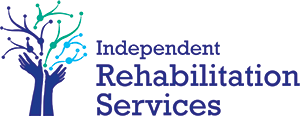
Welcome to our educational series
We’ve put this series together to address a gap in understanding of what exactly neurological allied health involves. Together, we will take a look at neuro-specific therapy and why this is beneficial for our mutual clients.
Let’s explore the what, the how and the why of neurological allied health therapies which will keep you well informed when it comes to your clients with neurological conditions. Our goal is to assist you in your day to day, by being informed about services, processes, clients and clinicians in this space.
Edition 01: A bit about us
Simply put, we are community-based allied health, providing support exclusively to adults with neurological conditions. Our core services are Occupational Therapy, Physiotherapy and Speech Pathology.
- IRS is an established neurological rehabilitation and disability service provider with 25 years of experience.
- We are committed to maximising independence, participation and integration in the community.
- We practise under the Human Rights model, meaning we believe each individual has the right to independence, participation in the community and agency over their decision making.
- We channel our expertise into neuro – it’s a challenging space to work in, but our team of clinicians find the complex problem solving stimulating and rewarding.
Our team of 55 clinicians are highly experienced and trained in neurological rehabilitation and disability – We understand the unique challenges faced by individuals with neurological conditions.
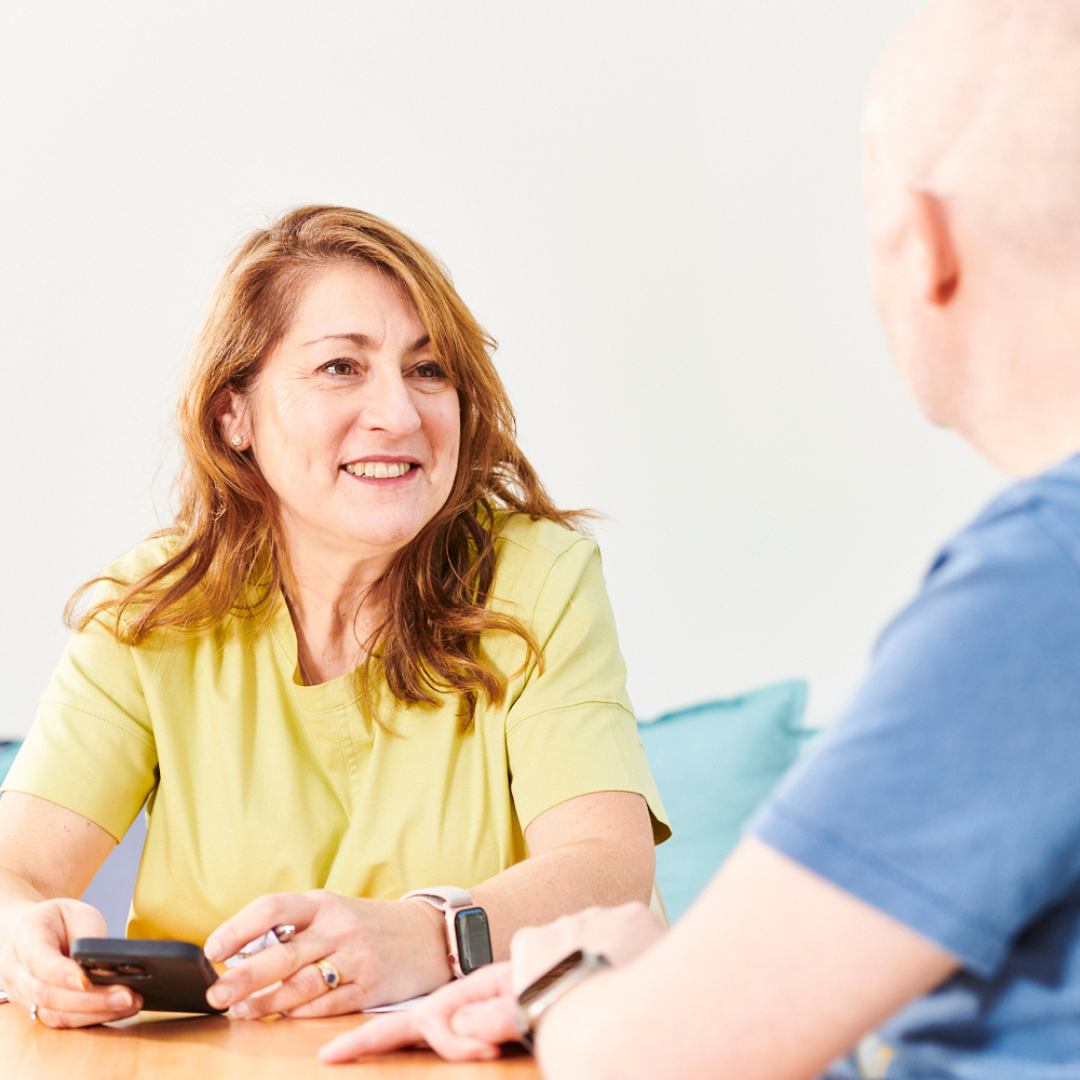

Our approach
- Our team works collaboratively and holistically to create an evidence-based, person-centred plan for treatment.
- We address the physical, cognitive, behavioural, social and emotional needs to promote overall well-being and optimal outcomes.
- We work with clients from hospital discharge to many years post injury, supporting them throughout their entire journey.
- We are all about support – for our clients and our clinicians alike!
And, we know what we're doing
- We’ve worked with TAC since we began, 25 years ago, and have been a registered NDIS provider since it launched in Victoria in 2016.
- Our wealth of experience in the sector translates to a simplified process for you and better outcomes for the client; due to effective report writing, evidence-based funding requests and the use of standardised outcome measures.
- We are experienced in identifying and overseeing the right supports for our clients’ needs.
Edition 02: Exploring Neurological Diagnoses
At Independent Rehabilitation Services, we provide support exclusively to adults with neurological conditions.
We focus on the areas our team are experienced in and passionate about, and this produces the best outcomes for the people we support.
Below, we will explore the most common neurological conditions we treat.
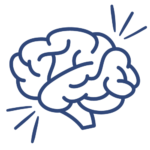
Acquired brain injury
An acquired brain injury (ABI) refers to brain damage that occurs after birth. Traumatic brain injury and stroke are both examples of an acquired brain injury.
Traumatic brain injury (TBI) is a type of ABI that is a result of outside force to the head.
A stroke can occur when one’s blood supply to the brain is blocked (Ischemic) or due to bleeding in the brain (Haemorrhagic).
Acquired brain injuries can affect various functions depending on the location and severity of the injury. Common effects can include:
Physical changes
Weakness or paralysis, often on one side of the body (hemiparesis or hemiplegia), and difficulty with coordination and balance.
Cognitive changes
Memory problems, difficulty with problem-solving and reasoning, and challenges with attention and concentration which can affect information processing and skill-learning
Emotional changes
Depression or anxiety, and emotional lability (difficulty controlling emotions).
Behavioural changes
Difficulty with social behaviour, motivation or getting started with tasks.
Sensory changes
Numbness or altered sensation, and changes in vision such as blurred or double vision.
Speech and language
Aphasia: Difficulty in expressing or understanding verbal and written language. Dysarthria: Motor Speech Disorder.
Swallowing difficulties
Dysphagia: Difficulty swallowing, which can lead to choking or aspiration.
Progressive neurological conditions
This refers to a group of neurological conditions that result in a progressive decline in function.
Some common examples include:
Parkinson’s Disease
Characterised by tremors, stiffness, and bradykinesia (slowness of movement).
Multiple Sclerosis (MS)
An autoimmune disease that affects the central nervous system, leading to a variety of neurological symptoms, including weakness, coordination issues and cognitive changes.
Motor Neuron Disease (MND)
A neurodegenerative disease that affects motor neurons, leading to muscle weakness and atrophy.
Huntington’s Disease
An inherited disorder that causes the progressive breakdown of nerve cells in the brain, leading to movement, cognitive and psychiatric symptoms.
People with progressive neurological conditions may also experience changes to their communication and swallowing.

Spinal cord injury
A spinal cord injury (SCI) refers to damage to the spinal cord that may have been a result of a traumatic accident or from causes such as tumours, degenerative and vascular conditions, infections, toxins or birth defects.
Impairments as a result of a spinal cord injury are dependent on the cause and severity as well as where it is located on the spinal cord. Complete or incomplete (reduced) loss of sensory and/or motor function below the spinal injury level may occur.
Common effects may include:
- Paralysis
- Spasticity
- Pain
- Bowel, bladder or sexual dysfunction
- Respiratory issues
- Other multi-system effects are possible, such as sensory, autonomic nervous system, cardiac and bone changes.
The above are just the more common diagnoses for us. However, we have a breadth of experience with many neurological conditions from our 25 years in the sector.
For a more comprehensive list of conditions, view neurological conditions we treat.
Edition 03: Client-directed goals, collaborative support & outcomes
Client-directed goals are those that are personally meaningful and important to the individual. They are the reasons why someone would seek our services. When clients set their own goals, they are more likely to be motivated and engaged with therapy which leads to improved outcomes.
Here’s an example of a client-directed goal, multidisciplinary supports and the outcome for the client:
Client-directed goal
“I'd like to get out and about more for regular social interaction.”
This client really enjoys cooking and chatting about different cuisines. They find it hard to know what to talk about since their accident. They love eating out at different restaurants.
They are able to walk short distances and use a manual wheelchair in the community.
Let’s explore what the multidisciplinary supports looked like for this client:

Occupational Therapy support
- The Occupational Therapist found different cooking groups in the client’s local community. Options were presented to the client, who identified their preference for the group they wanted to attend on a day that suited them.
- A trial was arranged so the client could attend the group with their support worker.
- The client loved the group and wished to attend every week. The Occupational Therapist supported the client to develop a weekly routine, incorporating the cooking group into that routine.
- The Occupational Therapist worked with the client to help them access the cooking group in their wheelchair. They also identified the need for power assist for the wheelchair to help the client travel longer distances in the community, and organised an assistive technology request.
- The client discussed catching public transport to cooking group as an option. The Occupational Therapist worked with the client on public transport access, navigation and safety.
Physiotherapy support
- The client was keen to walk part of the way to cooking group if possible. The Physiotherapist worked with them on outdoor walking, navigating curbs, and getting in and out of their wheelchair safely.
- The Physiotherapist worked with the client in the gym to help them build up their endurance to be able to walk longer distances and stand for longer periods during cooking group.
Speech Pathology support
- The Speech Pathologist worked with the client on how to initiate and maintain a conversation with others at the cooking group, and supported the client to identify and use communication strategies.
- The Speech Pathologist attended cooking group with the client to support them in conversation with others and review their use of communication strategies.
The outcome
The client accessed the community regularly by attending the cooking group.
They safely got from point to point using a combination of their wheelchair with power assist, walking and taking public transport.
They were able to independently communicate with others at the cooking group, increasing their social interactions.
They successfully achieved a self-directed goal that was meaningful to them.
Want more?
For more real-life examples of outcomes for clients – read our client stories
And for an exploration of the multidisciplinary approach we take to achieve outcomes for our clients – read this blog post
Edition 04: Client supports & safeguarding
Client supports
The term client supports refers to all the supports, both formal and informal, that can be accessed by a client to aid them in their daily activities and therapy goals. Here we will look at the different supports that might be available to your clients.
At IRS, as community neuro clinicians, we are experienced in collaborating and coordinating with a client’s formal & informal support network. We also look to create new avenues for support where required.
Now let’s dive right in…
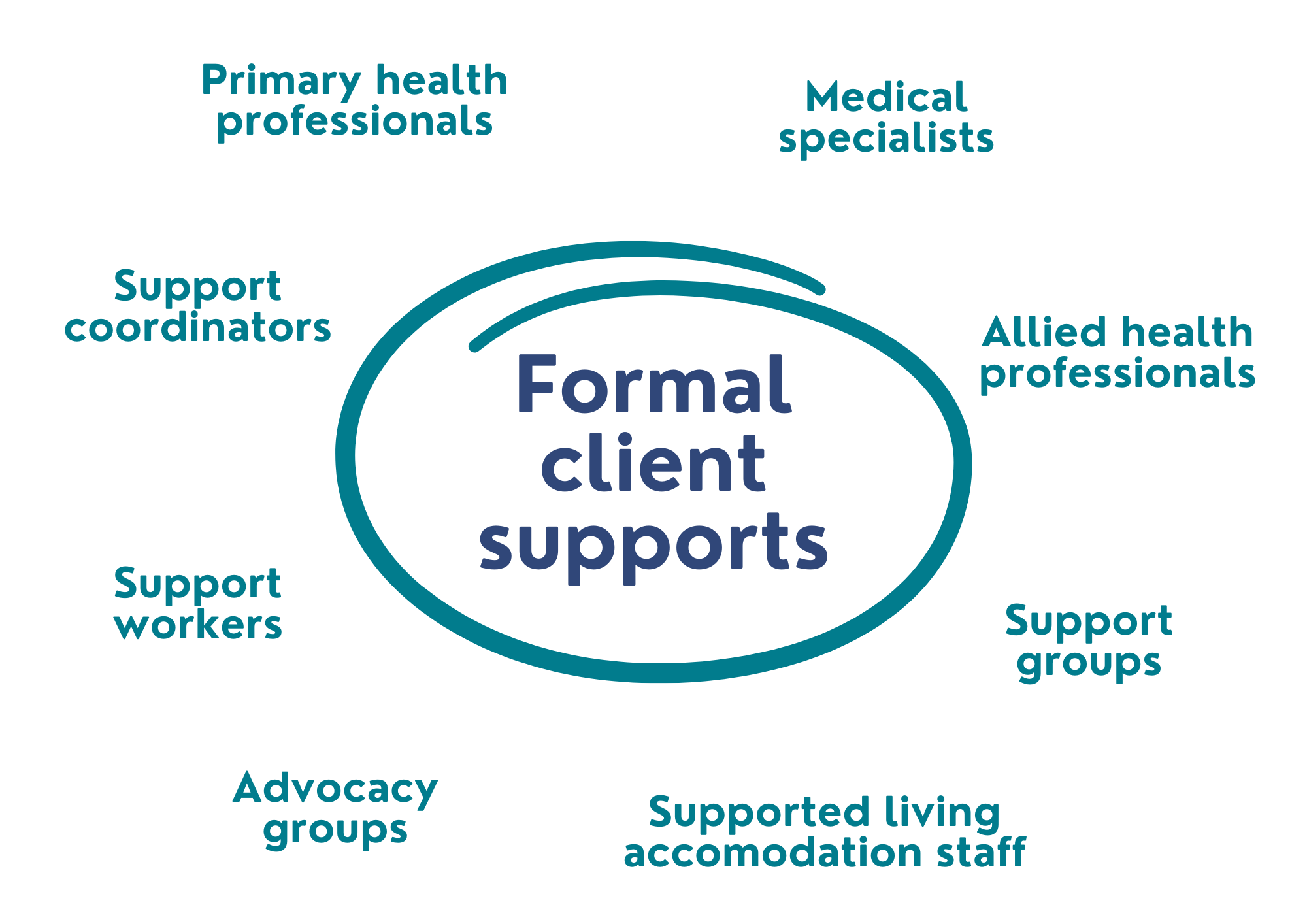
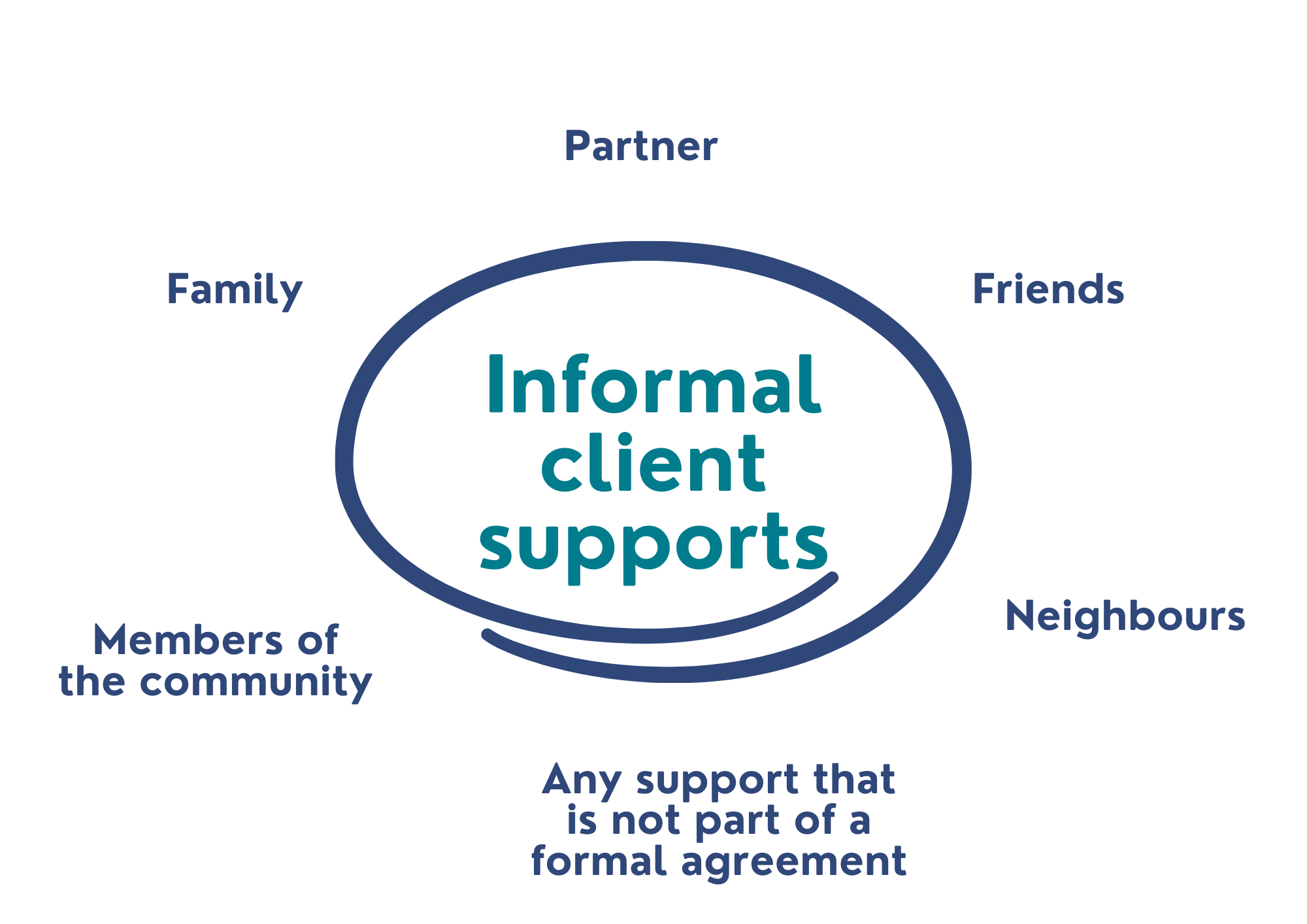
Depending on where the client is at in their journey, the supports may differ slightly. For example if the client has just recently been diagnosed or sustained their injury, they might have health supports in place whereas if they are years down the track, their supports will likely be more community-based.
The quality and breadth of supports that a client has available to them can be so instrumental in setting them up for success and independence.
Examples of how we work with client supports:
- Training & education for supports such as support workers and next of kin
- Collaboration with external formal supports – a holistic approach produces optimal outcomes
- Delivering risk and safeguarding management
- Expanding clients’ support networks through community participation and groups
Safeguarding
Client wellbeing is also very important when it comes to supports, which touches on the issue of safeguarding.
Safeguarding refers to taking measures to protect people, especially those who are vulnerable, from harm, abuse and neglect. It centres on the client’s safety and wellbeing, which is something we take very seriously at IRS.
All IRS staff are knowledgeable of and work within the Australian Human Rights framework. Our staff receive regular training and support for identifying and reporting safeguarding issues to our leadership team, who are experienced in the appropriate escalation pathways and reporting of safeguarding concerns, for example the NDIS Quality and Safeguards Commission and TAC Quality and Safeguards team.
Edition 05: Supporting our clinicians
At Independent Rehabilitation Services we have a large team of clinicians belonging to three distinct teams:
Occupational Therapy
Physiotherapy
Speech Pathology
Our people are everything to us. We fully appreciate that our team is our greatest asset, so we put a lot of focus and time into clinician development, wellbeing and safety.
We’d like to take you through some of the essential areas of support at IRS:
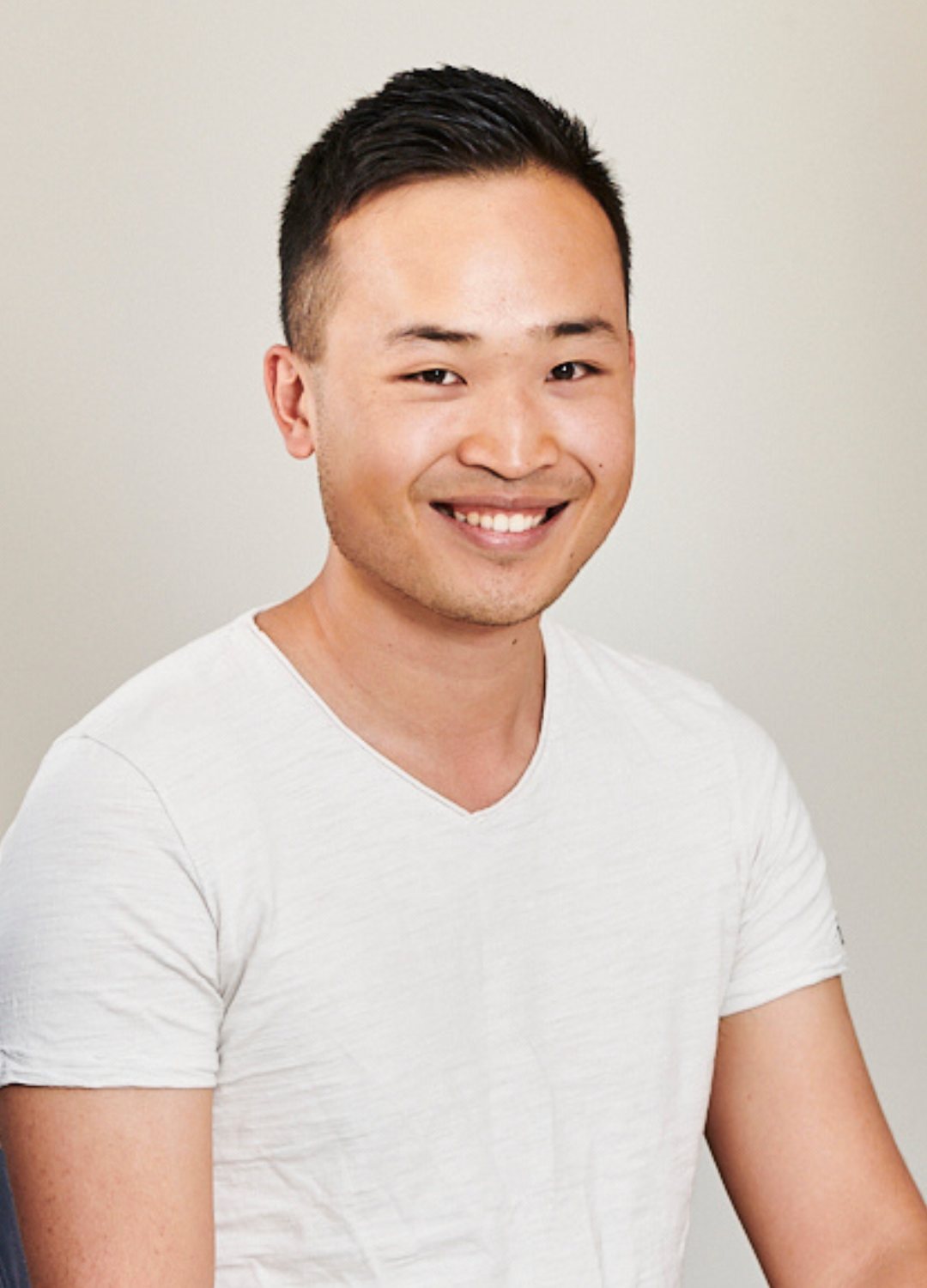
Clinician Development
Clinical and professional development plays a vital role in ensuring our people are equipped to navigate the complexities of their role. This ensures our clinicians at all levels of experience are able to provide high quality care and services to our clients.
Supervision and mentoring
Provides a structured framework for clinicians to receive guidance, feedback and support from our experienced team members. This helps them refine their clinical skills, enhance their decision-making abilities and navigate various complex clinical and professional challenges.
Joint working and case studies
Encourages collaboration and knowledge sharing among clinicians from across our three clinical teams, leading to a broader understanding of client needs and improved multidisciplinary care.
Professional development
Offers opportunities for our people to expand their clinical and professional knowledge and skills through internal and external workshops, conferences, online courses and other learning formats. This ensures we stay up-to-date with current evidence-based practices.
Career journey
Helps our people identify their career goals and create a personalised roadmap for achieving them, providing direction and motivation for professional growth.
Wellbeing
The physical, mental and emotional health of our people is so important, and is the reason why we invest so much in the wellbeing of our team.
Wellbeing team
Our Wellbeing team helps implement and develop a range of health and wellbeing initiatives and resources for our people, including group activities that centre around mindfulness, mental health, connection and self-care, and monthly email check-ins with tips and tricks to manage wellbeing and work-life balance.
Mental health first aiders and yearly refresher training
Having a team of Mental Health first aiders allows us to ensure our people are equipped to identify and provide initial support to each other, helping to promote a safe and supportive environment.
Resilience Buddy Program
This program provides a go-to person for informal support, helping to foster connection, mentorship and promote wellbeing.
Social committees, Wednesday lunches and shout-outs
Staff-led social activities are organised during and after work, we host Wednesday lunches to foster connection and provide further informal support, as well as a chance to have some fun with our colleagues! We also recognise and appreciate our people for things like work anniversaries, working wins and personal milestones to create a truly positive environment.

Safety
To help ensure a safe working environment, our team receives regular training and ongoing support in a range of areas.
Managing behaviours of concern
We develop the skills and knowledge needed to understand, assess and respond effectively to behaviours of concern that may pose a safety or wellbeing risk. Our clinicians develop an understanding of behaviour management and use effective behaviour support strategies to manage situations.
Mental health
We learn to recognise and understand common mental health concerns experienced by clients with neurological conditions and how to respond appropriately. This can include knowing when to connect a client with mental health professionals and services, as well as incorporating relevant strategies for clients.
Manual handling
We provide safe and effective support when clients require assistance with mobility, transfers and other physical activities as well as training supports to use safe handling techniques and operate equipment safely to prevent injuries.
Risk and safeguarding
We use robust processes and documentation to identify risk and safeguarding concerns and appropriate management strategies. This helps to improve client outcomes through access to our experienced and skilled clinicians to assist in forming strategies to prevent and manage risks.
We've covered a lot of ground together
We hope you now feel more equipped when it comes to working with your clients with neurological conditions. It’s been a pleasure to share our expertise from 25 years in the sector.
Remember, we’re always here to help. If you have any specific questions, please get in touch with us.
And if you have a neurological client requiring expert allied health support, referring to us is easy!
